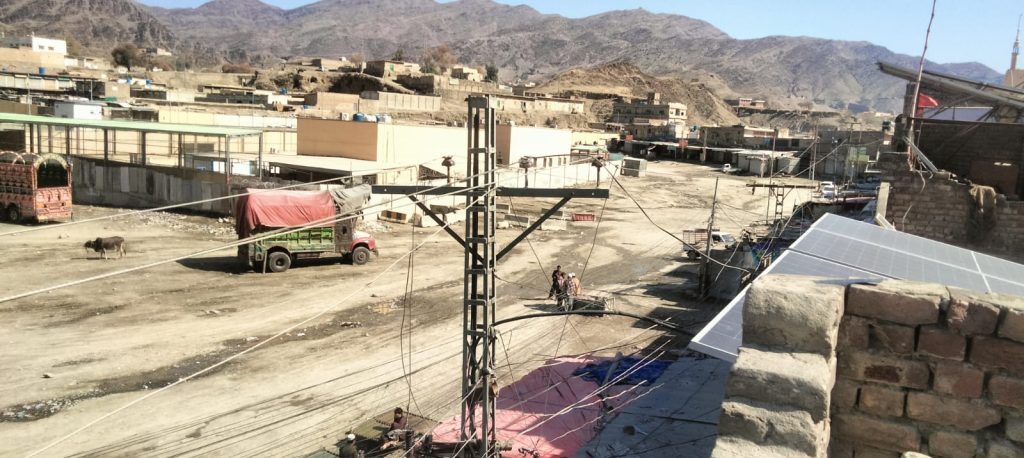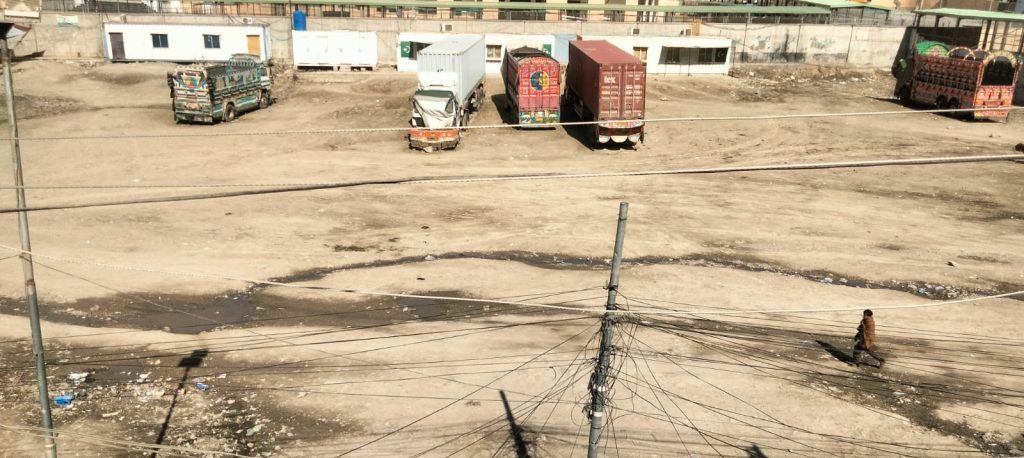
By Sudhir Ahmad Afridi
TORKHAM: The Pakistan-Afghanistan Torkham border remains shut for trade and passenger movement following a fresh escalation in tensions over a construction dispute, leaving thousands stranded on both sides. The closure, enforced since last night, stems from objections raised by Pakistani security forces over Afghan border troops attempting to construct a post in a disputed area—a move that has reignited longstanding friction at one of the most crucial border crossings between the two countries.
As the deadlock persists, commercial activity has come to a complete halt. Security at the border has been heightened, with Pakistani authorities suspending pedestrian crossings since Saturday morning, forcing travelers to turn back. The congestion at the border has grown, particularly as those arriving for immigration clearance have been left with no option but to vacate the area outside the NADRA immigration center. Trucks waiting for export clearance at Torkham Zero Point have been forced to retreat, while customs clearing agents have shut down their offices in response to the uncertain situation.
The shutdown has also impacted humanitarian services, with the Pak-Afghan Friendship Hospital—a crucial facility providing emergency medical assistance to Afghan patients—being forced to cease operations. With no immediate breakthrough in sight, the closure threatens to disrupt the fragile economic and social lifeline that the Torkham border provides, particularly for traders and patients who rely on cross-border movement for their livelihoods and medical needs.

Tensions of this nature are not new to the Torkham crossing, which has seen repeated flare-ups over territorial disputes and security concerns. In the past, disagreements over border infrastructure have been resolved through high-level negotiations, but the persistence of such disputes underscores the fragile nature of Pakistan-Afghanistan relations. Pakistani forces have urged their Afghan counterparts to halt construction, warning that any unilateral move in the disputed area could escalate the situation further.
While officials from both sides are expected to engage in talks to defuse the crisis, the prolonged closure of Torkham is likely to deepen economic and logistical hardships for thousands of traders, transporters, and civilians dependent on cross-border movement. For now, the situation remains tense but without any major incidents—though history suggests that without swift diplomatic intervention, such standoffs have the potential to spiral into larger confrontations.



